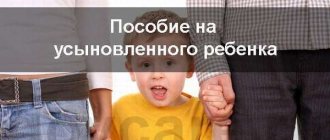On the territory of the Russian Federation, as in any other state, there live people with disabilities who need constant care. These citizens include disabled children, as well as incapacitated persons of the first and partially second groups. Of course, for the one who provides the necessary support and is engaged in guardianship, he receives certain privileges from the state, but in order to qualify for this, the representative must formalize the necessary things legally and is obliged to perform specific specific functions. In this case, it will be necessary to consider in more detail whether the guardian can work officially under the Labor Code of the Russian Federation.
Job requirements for a guardian
The current economic situation in the country often obliges citizens to question whether the guardian has the right to officially work, while officially receiving the corresponding privileges from the state. Regarding this situation, a number of points should be highlighted, namely:
- Only those who are recognized as unemployed can care for a disabled person; these persons are recognized as trustees, since they perform all immediate tasks.
- For these persons, payment of benefits is provided (benefits are received, and in addition the citizen receives a subsidy).
- Legally, when answering the question whether the length of service is suitable for all guardians, one can answer positively, although insurance deductions are not provided for.
- Such an event only implies official registration and full-time employment of a person.
- Caring for a disabled person differs from guardianship, since in the first case there is a different option for obtaining privileges.
Based on this, we can conclude that the guardian of an incapacitated representative cannot be officially employed, otherwise a certain benefit will not be provided for him, and in addition a number of other benefits entitled to a specific person.
Important. Even if in practice information about work is concealed, then after clarification of the relevant circumstances, it is envisaged that the entire amount of benefits received by the person providing care will be deducted from the pension of the incapacitated person.
Child's guardian and parents - rights, responsibilities, disputes
As established by law, children left without parental care are placed under guardianship (and trusteeship). With rare exceptions (if guardianship is appointed at the request of the parents - part one of Article 13 of the Federal Law “On Guardianship and Trusteeship”), at the time guardianship is appointed, the child is deprived of love, care and protection from his parent.
And now the child has a guardian... Cases when parents “come to their senses” and return to the child and try to take him away (this is called in dry legal language “restoring parental care”) are quite rare (in 2010-2012, only every tenth child of those identified as being left without parental care, was returned to their parents; ward children of this number - hardly every third). But such cases do occur, and, sadly, as a rule, with some kind of “distortions”.
The best option (for the child, of course) is, for example, the restoration of parental rights to the mother, who was previously deprived of them for ignoring the interests of the child. The correct path in this case is a certain “road to the child.” That is, the parent first builds a relationship with the child, restores it, and only then the issue of restoration of rights is decided, and then the transfer of the child to the parent from the guardian.
Of course, the guardian in this case must do everything necessary to protect the interests of the child. In particular, it is the guardian who determines whether, and in what form, communication between the parent deprived of parental rights and the child is possible. Paragraph two of Article 1481 of the Family Code clearly establishes that from the moment a guardian is appointed, parents (even those not deprived of parental rights) lose their rights and obligations to represent the interests and protect the rights of the child from the moment a guardian is appointed. This does not mean an automatic loss of parental rights, not at all, but it does mean that the decisions in the child's life are made by the guardian, not the parent, and it is the guardian, not the parent, who represents the child before all other persons. The parent does not have such a right at this moment.
In addition to the above, the guardian does not have the right to prevent the child from communicating with his parents (of course, not deprived of parental rights!) and relatives, except in cases where such communication “does not meet the interests of the child” (clause 5 of the same article).
In other words, if such communication is useful for the child (not just “won’t hurt”, but useful, that is, meets his interests) - it should take place. Otherwise, no. The guardian regulates this issue independently, based on his understanding of the child’s interests.
What should a parent (or, say, a grandmother who is a relative of the child) do if the guardian does not allow him to communicate with the child? The law provides for a complex mechanism here. A relative or parent must contact the guardianship and trusteeship authority (at the location of the child under guardianship) with a complaint about the actions of the guardian that impede communication with the child. The guardianship authority must consider this issue and, based on the interests of the child, make a decision: either demand that the guardian eliminate the violation of the child’s right to communicate with parents and relatives, or - this is also likely - agree with the guardian and refuse the relatives.
If the decision of the guardianship authority is to allow communication, but the guardian still does not allow relatives to communicate and does not comply with the decision of the guardianship authority, the relatives have the right to go to court, which will make a decision (again, based on the interests of the child). And which will have to be fulfilled regardless of the position of the guardian.
In practice, I have encountered cases where the guardianship authority obliged the guardian to ensure that the child communicates with the parent deprived of parental rights. It is illegal. One of the legal consequences of deprivation of parental rights is the loss by the parent of all rights and obligations, including the right to communicate with the child, to raise him personally, and all rights based on kinship with the child (Article 71 of the RF IC).
In this case, the guardian must appeal the decision of the guardianship authority (most often in court). A: Most often, the guardianship authority requires such communication orally, almost in the form of compulsory advice, and even in response to a timid request to formalize this “wish” in writing, they immediately stop insisting...
Let's return to other cases of “return” of parents. The most common case is when one of the parents returns after serving a sentence in prison. Most often this is the mother, but lately there have also been fathers who have served time, sometimes 5-7 years, but then “return.” In this case, the parent is not deprived of parental rights. And he retains the right to raise the child (Article 63 of the RF IC), however, the right provided for by law to legal representation and protection of the child’s rights is lost from the moment the guardian is appointed.
Considering that, by virtue of clause 6 of Art. 1481 of the RF IC, the guardian has the right and obligation to raise a child under guardianship, systematically applying this paragraph, as well as paragraph 2 of the same article, Art. 121, 123 of the RF IC, there is a clear conclusion that the legislator considers the upbringing and development of a child as one of the legal (that is, provided for by law) rights of the child, and care for them as the protection of legitimate interests.
Thus, even a parent who has returned from prison, or simply “returned” from somewhere, and has not been deprived of parental rights, does not have the right to immediately begin raising the child, and, in any case, to take him away from the guardian - he has lost these rights.
What should happen in this case? First, it is necessary to answer the question of whether it is in the child’s interests to communicate with the parent, and in what form this should take place. These issues are resolved by the guardian, who, if it is not in the interests of the child, has the right not to provide the parent with the opportunity to communicate with the child. A parent who does not agree with this has the right to appeal to the guardianship authority, and then, if the decision of the guardianship authority is not implemented, to the court.
Since it is the guardian who is responsible for protecting the rights and interests of the child, it is he who determines his place of residence (if the guardianship authority has not prohibited the guardian from changing it, this possibility is provided for in part four of Article 15 of the Federal Law “On Guardianship and Trusteeship”). And he may not agree to hand over the child to the parent.
In this case, the parent has the right to raise a question (in accordance with paragraph 3 of Article 1481 of the RF IC) about protecting the rights of the child and transferring the child to him. Quite often, with a counterclaim, the guardian raises the issue of depriving the “returning” parent of parental rights.
The guardianship and trusteeship authority does not have the right to release (let alone remove) the guardian from his duties only on the basis that the parent has “returned”. As is imperatively established by paragraph 1 of Article 39 of the Civil Code of the Russian Federation, the guardianship and trusteeship authority relieves the guardian or trustee from fulfilling his duties in cases of the return of a minor to his parents or his adoption. Considering that the child cannot be left without any care at all (Articles 121-123 of the RF IC), the release of the guardian can take place no earlier than the child is actually handed over to the parent.
If the guardianship authority nevertheless issues a decision to release the guardian, it must be appealed, at the same time demanding that its action be suspended while the case is being considered. Cases of this category are usually lengthy, complex and ambiguous. But during this period, the child cannot remain “between heaven and earth” and without protection.
Thus, if a parent whose child is under guardianship wants to take him and raise him independently, he must:
- restore parental rights (if he was deprived of them);
- contact the guardian and try to establish communication with the child (based on the child’s interests);
- file a complaint with the guardianship and trusteeship authority if the guardian unlawfully deprives him of such communication;
- if the guardian does not comply with the decisions of the guardianship and trusteeship authority, go to court, which will prohibit the guardian from interfering with communication;
- apply to the guardianship and trusteeship authority to resolve the issue of returning the child to the parent and releasing the guardian from his duties;
- if the guardian refuses, go to court to resolve the dispute over the child’s upbringing and demand that he be transferred to his own upbringing. The court resolves this issue based on the interests of the child.
And quite often he refuses: the desire to take the child away is not quite enough - a parent who has allowed his child to be left without parental care is not always the best fate for the child.
Labor activity for an incapacitated person or a disabled child
When assessing the situation, whether guardianship (guardianship) is included in the length of service, it is necessary to highlight a number of nuances. As a rule, in such a case the following points are present:
- the state provides such a citizen with the required benefits;
- care is formalized legally through certain authorities;
- appropriate contributions are provided for by the country's management and regulatory framework;
- the person is exempt from taxation for the entire period of activity;
- it provides full access to free medicine.
In other words, providing the necessary care for an incapacitated person, including a disabled child, implies the inclusion of this period in the length of service for the subsequent calculation of a pension, however, a special procedure is provided for here, which is provided for by current legislation.
Liability of Trustees
Liability is provided for failure to fulfill the duties of a guardian. Unfortunately, in [current_date format='Y'] there is no provision for liability for the main violation - the return of a child to an organization for orphans. Even if a citizen has spent all the minor’s funds and returned him to the orphanage, no punishment is provided.
In 2021, the following liability options for a guardian are provided:
- for improper performance of duties;
- for the actions of the ward.
For improper performance of duties
In case of improper performance of duties, the substitute parent may be held liable under Art. 5.35 Code of Administrative Offenses of the Russian Federation. The maximum penalty in 2021 is 500 rubles.
If a relative of a child goes to court to determine the order of communication with a minor, then the citizen is obliged to comply with the court decision. Otherwise, a fine in the amount of 2,000 to 5,000 rubles is applied as punishment.
In case of repeated prosecution under Art. 5.35 of the Code of Administrative Offenses of the Russian Federation, the guardianship department may raise the issue of removing a citizen from performing duties. In this case, the minor is placed in a specialized organization. And the guardian is subject to a lifelong ban on accepting children into the family.
For the actions of the ward
If a student, through his actions, causes damage to someone else’s property, then responsibility rests with the guardian. The exception is the situation. When the ward is over 16 years old.
In this case, he has reached the age of administrative responsibility. But his guardian still decides financial issues for him.
If a child commits a crime, he is personally held criminally liable. And compensation for damage is assigned to the substitute parent.
Recognition of a citizen as unemployed
Of course, the Government and other governing bodies do not grant such status to everyone. In order to legally register many of the necessary things, you will need to confirm your employment through registration with a certain authority. At the same time, when accepting documentation, confirmation is required that the citizen at the time of application is not officially employed.
That is why it is necessary to issue a corresponding certificate at the Employment Center, which will serve as confirmation of status and receipt of the appropriate unemployment benefit. Only in this situation will it be possible to receive legally defined benefits and privileges from the state.
Responsibilities of a guardian to live with a ward
To implement educational functions and protect the rights of children under guardianship, the guardian must be in constant contact with the child. Therefore, the legislator established the obligation of a guardian (trustee) to live together with his ward (clause 2 of article 36 of the Civil Code of the Russian Federation).
Migration officials must easily register the person under guardianship at the place of residence of the guardian (and vice versa). Thus, the guardian can live in an apartment that is owned by the ward. The basis for registration will be the act of appointment of a guardian or trustee.
Upon reaching the age of 16, the ward may live separately from the guardian, but only with the consent of the guardianship authority. If the guardian does not live with the child without good reason, the guardianship authority is obliged to take measures to bring the guardian to justice.
Work experience and guardianship
Compatriots and individuals who provide the necessary care for disabled representatives of the first group and children with disabilities are given the opportunity not to work legally. Of course, this is associated with a low financial situation, but it does not have any effect on other aspects, since for each year spent in guardianship work, a corresponding increase in official length of service is implied, which is done through the Employment Center.
In other words, even if a person spends most of his life providing care to a disabled person within the framework of the law, he will subsequently receive a stable labor pension on an equal basis with those who were employed at that time under the Labor Code of the Russian Federation.
Important. In fact, only in theory the majority looks attractive, but with guardianship the contributions are so small that subsequently, after retirement, the person will receive a minimum pension allowance, not to mention the entire stage of life when care is provided, since a minimum benefit is provided. Based on this, it should be concluded that under such circumstances it would be better to work informally.
At the moment, many are forced not to go to work under the Labor Code of the Russian Federation, since they provide excessive assistance to persons with disabilities. According to the law, this is encouraged with everything necessary, but in practice the majority looks completely different, which is why such people are forced to go to work, giving up the provided privileges and corresponding powers, in order to ensure an adequate financial situation and stable nutrition for themselves, and in addition for a person with disabilities possibilities.
The obligation to ensure that the child communicates with relatives
The guardian (trustee) is obliged to ensure communication of his ward with relatives. Of course, this is only possible if the relatives themselves desire such communication. The guardian cannot prevent the child from meeting with the parent living separately. Such parents have the right to participate in raising the child together with the guardian. Of course, the guardian can refuse parents who have been deprived of parental rights to communicate with the child.
If a guardian refuses to allow close relatives to communicate with the child, they can contact the guardianship authority. Guardianship officers may oblige the guardian not to interfere with communication with relatives; execution of such a decision is mandatory for the guardian.
Responsibility of guardians for harm caused to the ward
The guardian is obliged to compensate for the damage caused to the ward under the age of 14, except in cases where it is not his fault (the burden of proof lies with the guardian). The guardian is not at fault if the harm was caused in an educational institution, as well as in cases where the child’s behavior was caused by the parents’ failure to fulfill their duties, within 3 years after the deprivation of their parental rights (Article 1075 of the Civil Code of the Russian Federation).
The guardian is obliged to compensate for damage caused to a ward aged 14 to 18 years only if the child does not have (insufficient) property with which he can compensate for the damage. If the ward has income sufficient to compensate for the harm or he has reached the age of majority, the trustee is no longer obliged to compensate for the harm (Article 1074 of the Civil Code of the Russian Federation).
Author of the article
Types of social assistance for children in their care
Taking into account the fact that ward children have the same property and non-property rights as children raised in their own families, social assistance to the ward child will also be of a property and non-property nature.
As for property social assistance to a child, it can include all monetary payments that will be received in his name from the state or charitable organizations.
As for non-property social assistance, it includes:
- Benefits for travel in city municipal transport, with the exception of passenger taxis and minibuses;
- The right to receive free textbooks for school and other stationery necessary for the child in the learning process;
- The right to preferential summer holidays, paid for by the state in full or in part;
- The right to free provision of medicines and medical care;
- The right to two free meals a day.
Of course, this is far from a complete list of non-property social benefits. They depend on specific regions, therefore it is necessary to find out in advance all the information about the types and types of social assistance for a child under guardianship in the regional branches of government authorities that regulate and control the process of guardianship and trusteeship.
Author of the article
What do inspectors have the right to do?
When it comes to home inspections, they have a strictly regulated list of powers:
- inspection of the house and the premises in it, but only in the presence of the residents, and even better, the owner of the house;
- inspection of the child’s place of residence, where he spends his leisure time. This means his room;
- conversation with the child, his adoptive parents, as well as other family members;
- conducting a survey of third parties - neighbors, relatives, teachers in an educational institution;
- studying documents that relate to the child.
At the same time, representatives of the PLO do not have the right to look into the closet, refrigerator, or touch the personal belongings of the child or other residents of the house without permission.
But they have every right to show what the child eats and whether he has the necessary hygiene items. Facebook
Will the new bill help solve the problems?
“The long-term practice of applying Article 77 of the Family Code of the Russian Federation often indicates arbitrary interference by authorities in family affairs, which affects both children and parents (adoptive parents, guardians),” says the explanatory note to the bill. According to the proposal of its authors, cases of removal of children in case of a threat to their life and health should be considered by the court in an expedited manner - within 24 hours from the receipt of an application from the guardianship authorities or the police. The meetings will be held behind closed doors.
Duty to protect the interests of the ward
A guardian (trustee) is a representative and protects the rights and interests of his ward through legal actions. The rights and responsibilities of a guardian in protecting the interests of the ward are somewhat different from the similar rights and responsibilities of a trustee.
Guardians perform all legally significant actions in the interests of the ward and on their behalf. A person under guardianship does not have the right to independently enter into most transactions, because does not have full legal capacity (clause 2 of article 28 of the Civil Code of the Russian Federation). Such transactions will be considered void. The exceptions are gratuitous transactions (gifts that do not require registration of ownership) and small household transactions. Also, the ward can enter into transactions for the disposal of money that the guardian provided to him for a specific purpose.
Since a trustee is appointed to a child who has reached the age of 14 years, the degree of participation of the trustee in performing legally significant actions is reduced. A person under guardianship has the right to personally dispose of his income, dispose of the results of his intellectual activity and open deposits. For other transactions, the consent of the trustee is required.
Being a full representative of his ward, a guardian (trustee) has the right and obligation to protect his rights and interests in court and other bodies.
What will the guardianship check?
You need to understand that for the guardianship authority, the most important thing is the condition of the child himself. The size of the house, the richness of the furnishings, the presence of household appliances - this is all secondary and does not play a decisive role.
Representatives of the guardianship authority will check the following:
- the physical state of the child’s health - are there any bruises, abrasions, signs of beatings, strange rashes and other signs on the body that a healthy person should not have;
- appearance - what clothes he wears around the house, to school or for a walk, depending on age;
- grooming and cleanliness of the child’s body;
- social behavior - how well adapted he is in society, how he communicates with adults;
- family relationships, most importantly with adoptive parents;
- education, intellectual development;
- financial situation in the family - this does not mean great wealth, but there must be the necessary minimum.
The guardianship authority will also pay attention to the situation as a whole, and may even talk to neighbors.
No social support for families
All the experts interviewed agreed that the current legislation works in one direction - to remove children, and not to prevent families facing difficulties.
“If the guardianship has decided to remove the child for any reason, it will file a lawsuit to limit or deprive the parents of the rights, because the law requires it. This is not a choice of custody, not an individual consideration of each situation, this is simply a formal obligation,” Alshanskaya said.
The selection procedure itself is very cruel, merciless to both mother and children, Leonova believes. In her opinion, even if the situation was threatening the life and health of children, the child has the right to an explanation of where and why he is leaving, why this happened. “And in acute situations, when adults in the family behave inappropriately and pose a threat not only to the child, but also to specialists, the child deserves a very delicate explanation and conversation in a calm atmosphere. The sensational stories of confiscation always look the same: adults fight with adults, but they don’t pay attention to children,” said Leonova.
Ideally, she says, the seizure procedure should take place in the most gentle environment possible. The child needs to explain everything that is happening as clearly and delicately as possible. “The first thing a specialist should do is contact relatives or close family members so that the child can spend some time with familiar people,” Leonova said.








